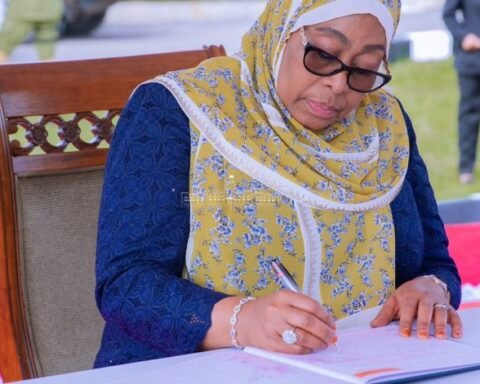Tanzania, a country known for its rich diversity with over 120 ethnic groups, is witnessing the slow but steady disappearance of two of its most unique communities:
the Hadzabe and the Tatoga. These groups, deeply connected to their traditional ways of life, are facing an uncertain future due to the growing impact of climate change, loss of land, and increasing socio-economic pressures.
The Hadzabe, one of the last hunter-gatherer societies on Earth, have lived for generations in the Yaeda Valley near Lake Eyasi. With only about 1,300 to 1,500 members, the Hadzabe have survived for centuries by living in harmony with nature. However, their traditional way of life is now under threat. Climate-induced disasters such as flash floods and mudslides, which devastated Babati and Mbulu districts in 2023, have severely damaged their homes and the land they depend on. Nearly 60 percent of their dwellings were affected, forcing many to leave their ancestral lands and seek shelter elsewhere.
“The Hadzabe rely completely on their environment. When their land suffers, they suffer,” explains Eva Kihupi, an expert on governance and economic policy. “Climate change is no longer a distant concern for them; it’s a real and present challenge.”
The Tatoga, also known as the Datooga, face similar struggles. This pastoralist community, found mainly in Manyara, Singida, and Dodoma regions, has long relied on livestock as their primary source of livelihood. However, prolonged droughts have greatly reduced grazing lands, pushing them into fierce competition for resources with other communities. Rising temperatures, unpredictable rainfall patterns, and increasing water scarcity have added to their growing difficulties.
AlsomRead; Bodaboda Drivers Receive Training In Arusha
For both the Hadzabe and the Tatoga, their way of life is being drastically altered. The Hadzabe, whose survival has depended on hunting and gathering wild plants and game, are seeing their resources deplete. Only around 150 to 200 Hadzabe continue to practice their traditional hunting and gathering methods, as many are being displaced and pushed away from their ancestral homes.
The impact of climate change is undeniable, and the survival of these two communities is increasingly at risk. As their populations decline and their cultural heritage erodes, the future of the Hadzabe and the Tatoga looks more uncertain with each passing year. It is clear that urgent action is needed to protect these communities and the unique lifestyles they represent, before they are lost to the forces of climate change and development.








I just could not depart your site before suggesting that I extremely enjoyed the standard information a person provide for your visitors? Is gonna be back often in order to check up on new posts